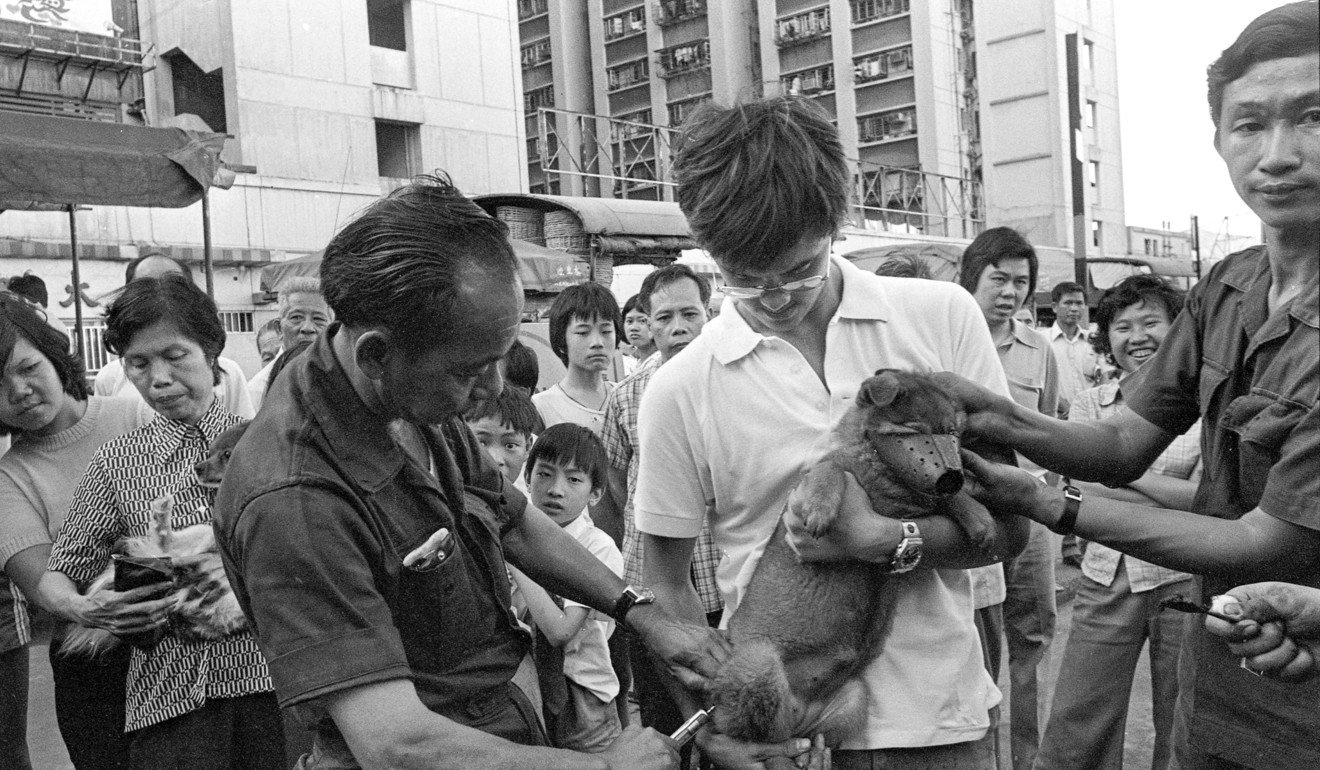
The first National Day festivities, rabid dogs and angry politicians: headlines from four decades ago
A journey back through time to look at significant news and events reported by the South China Morning Post during this week in history
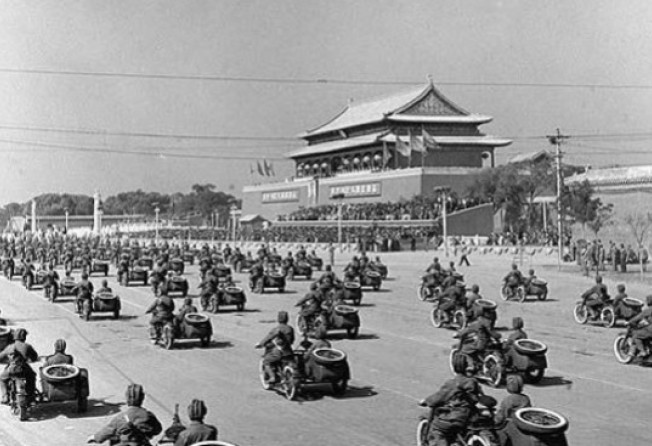
October 2, 1977
● Police interpreters claimed they had been subjected to intimidation after refusing to handle work which they said was not part of their duties. The allegations came a week after their industrial action in which they refused to translate documents for court proceedings, prepare case summaries and case exhibits, and give advice to rank and file police on personal matters. The case was investigated by the interpreters’ staff association.
● Hundreds of thousands of Beijing residents poured onto the streets and parks in the capital to take part in a massive celebration of the October 1 National Day for the first time under Chairman Hua Guofeng. The 28th anniversary of the founding of the People’s Republic of China culminated that evening with a gigantic spectacle in Tiananmen Square, transformed into a large outdoor stage for various performances.

October 3, 1977
● The government issued a warning that a shocking number of the 30,000 dogs in the New Territories had not been vaccinated against rabies. A senior government veterinary officer said the numbers of unvaccinated dogs in rural areas exceeded those in urban districts. In the meantime, the government also provided a service for the “disposal” of all unwanted dogs and cats.
● The wife of a Macau village chief had her nose shot off in a hunting accident. Lum Kum-lin, 58, was working in a field near her home in Hak Sa village when a bullet fired by a Portuguese hunter hit her nose.
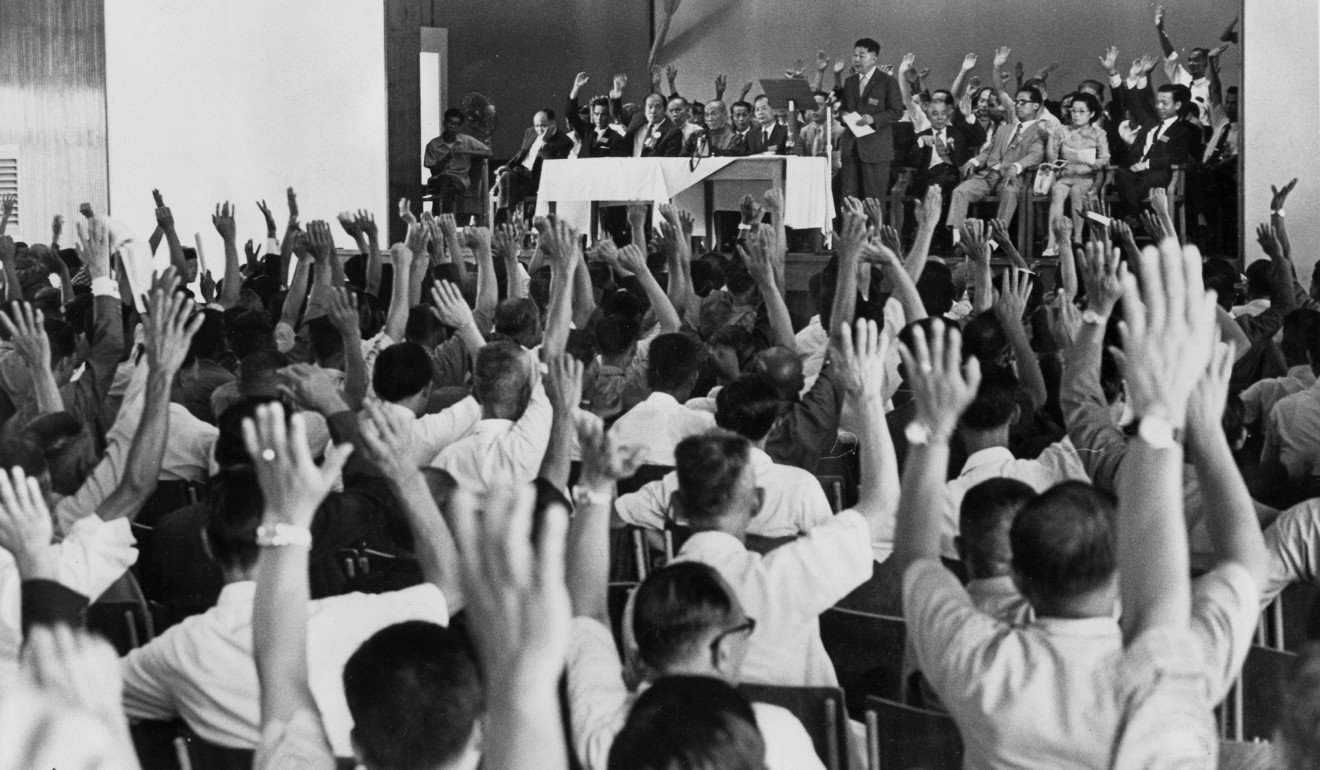
October 4, 1977
● The Hong Kong government denied any prior knowledge of the passage through Kai Tak airport of two Filipino fugitives a few days before. The pair – a former Manila newspaper publisher, Eugenio Lopez Jnr, and a former leading businessman, Sergio Osmena III, were facing trial in the Philippines for their alleged role in a conspiracy to kill President Ferdinand Marcos five years ago.
● A group of Heung Yee Kuk councillors called on the Kuk to sever all ties with the government to protest over what they said was its failure to implement certain proposals. These radical councillors wanted the Kuk to boycott monthly meetings with the New Territories Administration and, at a lower level, the rural committee meetings with various district offices. On a less official level, they also wanted the Kuk to boycott the annual Lunar New Year luncheon party hosted by the New Territories Administration.
October 5, 1977
● A group of Vietnamese refugees were put in an isolation unit at Princess Margaret Hospital with suspected cholera. The 31 refugees arrived in the city the day before on board two fishing boats after a two-month voyage. They were spotted by police when some went ashore near Tai O to buy drinks from a store.
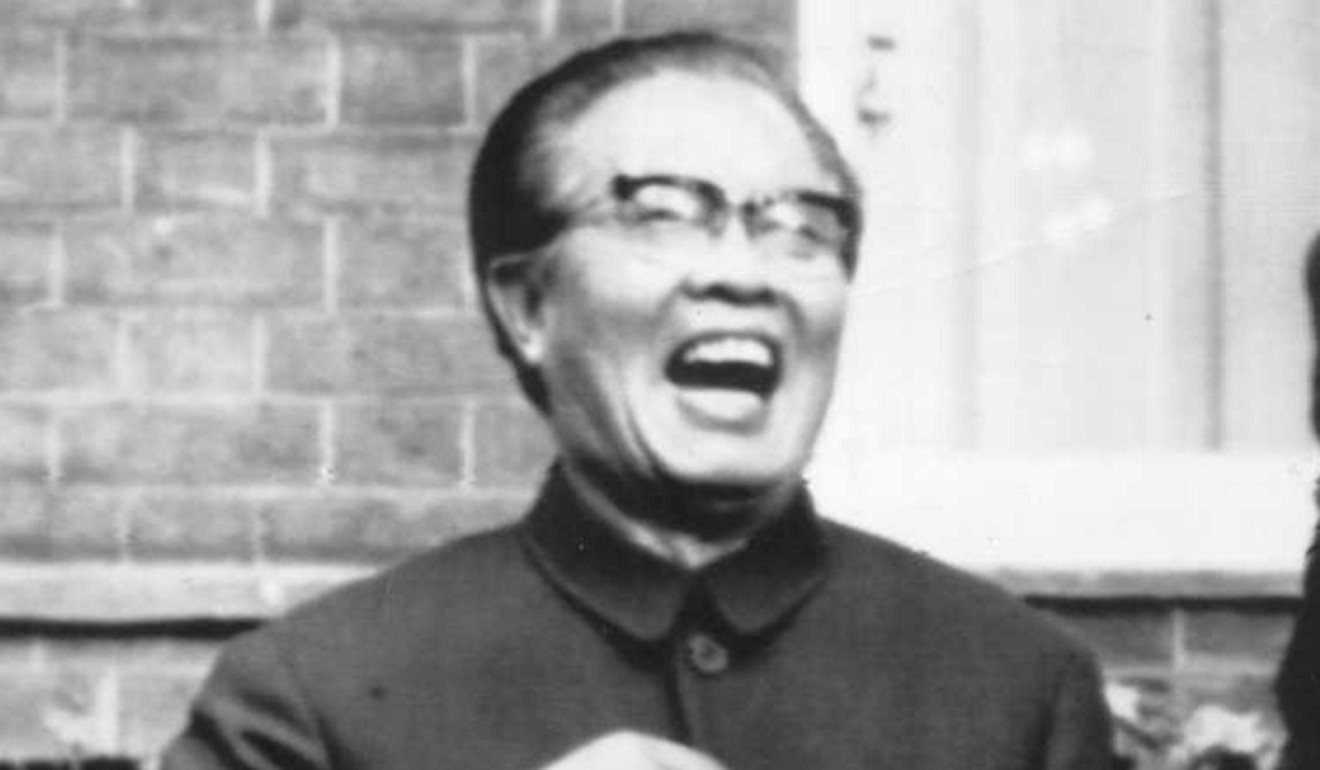
October 6, 1977
● The Chinese Foreign Minister, Huang Hua, said both Chairman Hua Guofeng and the Vice-Premier Deng Xiaoping had given instructions to maintain the status quo in Hong Kong and Macau “in the next 10 to 20 years”. Huang said Hong Kong and Macau were special areas where the struggle between the right and the left were fierce, but at the same time, the two places would play an important role in China’s trade drive and efforts to gain foreign technology and equipment.
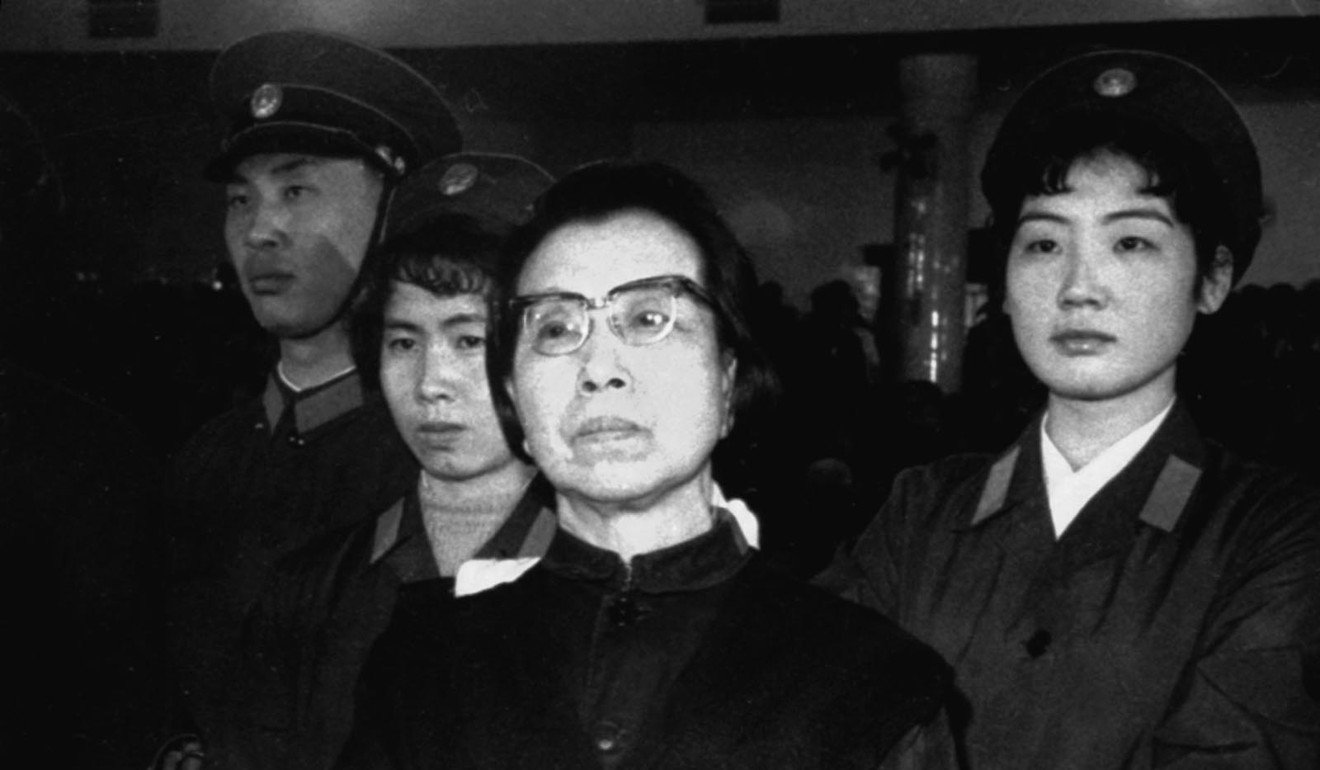
October 7, 1977
● The Gang of Four, arrested a year ago and subjected to intense public criticism, were still receiving a relatively high salary. It was reported that Jiang Qing, the widow of Chairman Mao Zedong, and her three accomplices continued to receive 200 yuan (about HK$500 at the time) per month, or four times the monthly salary of a worker.
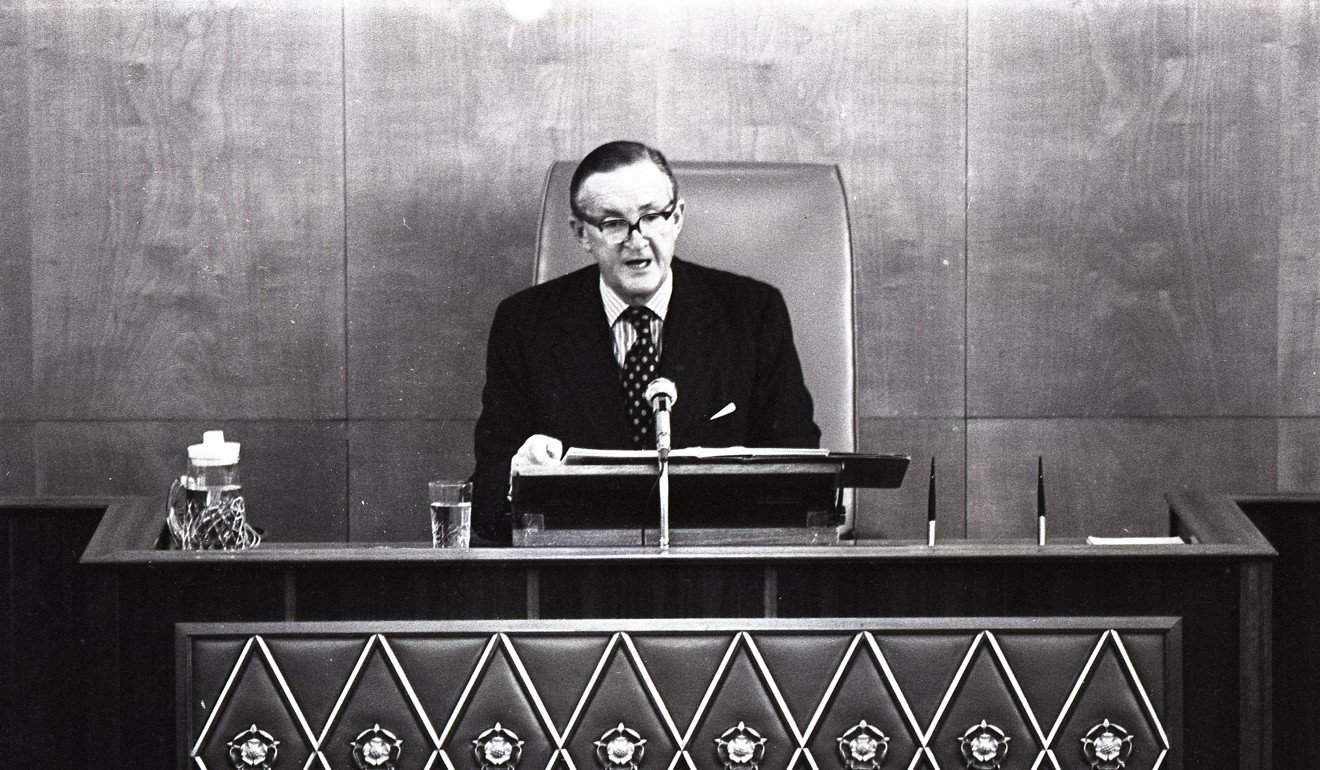
October 8, 1977
● A bridge to Lantau – key to opening up the virgin lands on the northern foreshore of the island – was projected to be completed within five years. The Governor, Sir Murray MacLehose, gave the greenlight to the project which allowed the construction of a fixed road crossing between the mainland and the island. At the same time, the government was urged to look again at the possibilities of building a second airport with two runways on Lantau.
Remember A Day looks at significant news and events reported by the Post during this week in history
It’s hard to believe that residents in Beijing were, for the first time, treated to a behemoth celebration of China’s National Day 40 years ago, especially given the extent of past celebrations. Meanwhile in Hong Kong, rabies was a looming threat to public health back, and the situation was particularly serious in rural areas where many dogs were found not to have been vaccinated against the disease. And the mutts were not the only ones that were barking mad up north; a group of rural councillors had a go at the government for failing to implement certain proposals put forward by them. Read on to find out more.